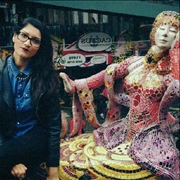Tutor HuntResources Sociology Resources
Research Reflection: Facebook's Role In The Rise Of Virtual British Extremism
Date : 07/07/2015
Author Information

Uploaded by : Arooj
Uploaded on : 07/07/2015
Subject : Sociology
Initially the study was influenced by the death of an acquaintance in early 2010. The death was a result of a gunshot wound during a routine patrol in Helmand province, Afghanistan. Following his death the usual events occurred; the Wootton Bassett parade; a family funeral in Dagenham; and a dedicatory Facebook fan page. The comments evident on his fan page were initially void of nationalistic remarks, however as the months passed the comments developed a national identity of their own. The frequency of the comments eventually died down, however around Remembrance Day his page experienced an abundance of racialised and nationalised condolences. During that time, it seemed that the connection between his decease, his time spent serving in the British Army and Remembrance Day was so strong that all other non-military aspects of his life had been lost. Infrequently a user posted a comment stating some long-lost memory regarding a shared childhood, but apart from such seldom referrals his life appeared to have been amalgamated into the wider collective of an online British national identity. The study was also influenced by the poppy-burning event of Remembrance Day 2010, which served as a reminder that despite ritualistic British events taking on a multi-cultural façade, they still remain clearly racialised with very little space for 'other' identities to take part. As a result of the burning of a large plastic poppy during the two minutes silence synonymous with Remembrance Day, affiliated fan pages have been brimming with users keen to put forward their opinions and perspectives on the event, which in turn has resulted in the construction of a collective national identity online. Previous research regarding online communities has tended to use ethnographic research consisting of face-to-face (or avatar-to-avatar) interviews with participants in conjunction with online observational methods (Miller and Slater, 2001. Miller, 2011. Lysloff, 2003.) Brotsky and Giles (2007) on the other hand conducted their online research by creating alternative virtual identities and participating as covert members of the discussion board in order to gain access to the pro-anorexic community. Within the present study, a non-participatory observational role was adopted, despite having the option to adopt the identity of a covert participator like Brotsky and Giles (2007), it was avoided as taking such a deceptive role is rife with ethical implications. As the researcher was already a member of the online community being studied, contrived deception was kept to a minimum. Kottak (1982) states that by trying to research a culture different to one's own, the researcher may develop a more "impressionistic domain, one in which analysis sometimes seems akin to philosophy or the humanities as to the sciences" (1982:42), therefore researching an unfamiliar culture may create an invalid analysis.
This resource was uploaded by: Arooj
